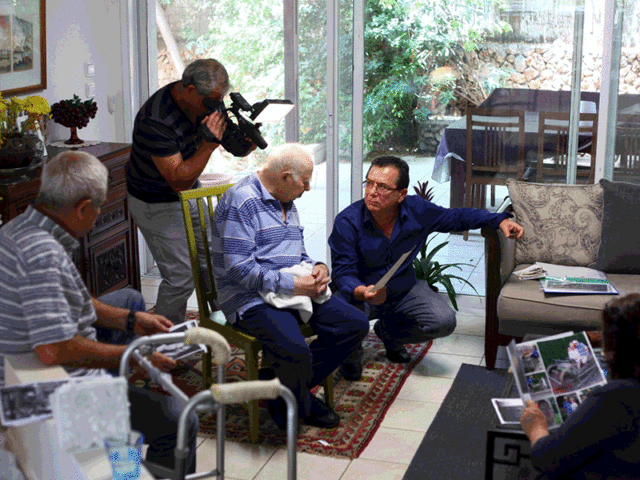Molètai is a small town in Lithuania with a dark past.
On Aug. 29, 1941, Molètai residents, in partnership with Nazi officers, massacred the Jewish townspeople. These victims had been rounded up a few days earlier and locked inside the local synagogue without food or water. Around 2,000 Jews were then marched to the edge of the town and murdered. Locals dumped their bodies into a pit.
Lithuanians were complicit in this massacre, actively assisting in or turning a blind eye to the bloodshed. Those who watched from their windows, as their Jewish neighbours walked to certain death, did nothing to stop the annihilation.
“All Lithuania is one big mass grave,” says Tzvi Kritzer, an Israeli football agent who devoted much of the past four years to producing a film about Molètai and that massacre.
The Last Sunday in August had its world premiere in Israel last summer, and screened in Lithuania shortly after. The film will screen at Chabad Flamingo in Vaughan on April 12, with Kritzer in attendance.
Kritzer was born in Lithuania and immigrated to Israel in 1973. However, he says he was aware of this bloody past as a child, as much of his parents’ families had perished in the Holocaust.
“When I was [a child], I remember that every last Sunday of August, the people who survived from Molètai were meeting in the place of the mass grave to commemorate the dead,” he tells The CJN.
After watching a Holocaust documentary on Israeli TV made by Eli and Tzvi Gershzon – a director and screenwriter, respectively – Kritzer realized he had to tell the story of Molètai. He hired both Gershzons to assist him with The Last Sunday in August.
Their creative partnership, with Kritzer on board as a producer, would last close to three years. The documentary contains interviews with several Holocaust survivors and citizens of Molètai, and also chronicles the history of the shtetl. Much of the harrowing subject matter is rendered through animation.
But the path to the final cut was fraught with challenges – especially due to the few surviving witnesses of that massacre.
“The whole time I was thinking, Why am I so late?” Kritzer says. “I should have [made the film] 10, 15 years before.”
Helpful hands from museums around Lithuania helped the filmmakers track down witnesses and descendants of the town’s Jewish community. One large assist came from a library of video evidence at the United States Holocaust Memorial Museum in Washington.
This story of destruction may be little-known because of the vast absence of Jews from Lithuania after the Holocaust. More than 90 per cent of Lithuania’s Jewish population died during the war, a rate among the highest in Europe.
Kritzer says he regrets not asking his father more about life in Molètai before the war. His father avoided a terrible fate because he ran away from home to seek refuge in the Soviet Union. Unfortunately, he could not convince his parents or two brothers to join his escape.
After serving in the Red Army, Kritzer’s father returned home to find his family gone and the local Jewish population mostly vanquished.
For Kritzer, The Last Sunday in August also allowed him to help plan a pivotal gathering: a memorial procession on Aug. 29, 2016 – 75 years to the day of the Molètai massacre. Beyond its symbol of healing and solidarity among locals, the procession was an opportunity for the Lithuanian native to march in the footsteps of his relatives.
More than 3,000 people arrived in the town for the commemoration, including the president of Lithuania and relatives of the victims flown in from Israel, Canada, and other countries.
“[It was like] Lithuania suddenly woke up,” Kritzer says of the large response to the march. “It was one of the most emotional moments in my life.”

























